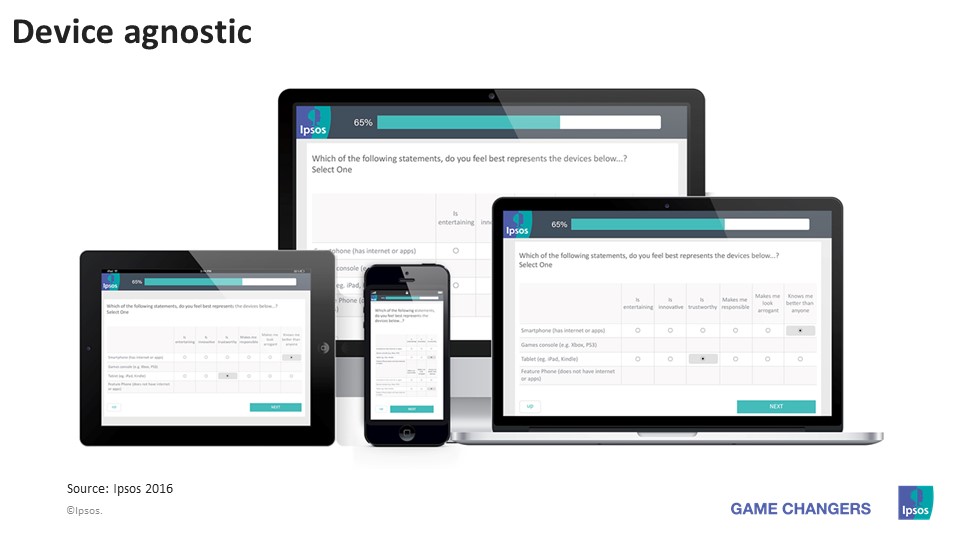Device Agnostic Surveys a Necessary Evolution 2017
Current characteristics of device-agnostic surveys at Ipsos

The questionnaire adapts itself to the respondent’s device thanks to the Ipsos device responsive survey template (Engage)
The survey is written with the smallest screen size in mind - “mobile first”
The survey is 20 minutes or less.
Why is it critical to move to device agnostic now?
The world is increasingly mobile:
- 80% of adults will have a smartphone by 2020
- Smartphone penetration is strong everywhere and even higher in desirable targets – 18-35.
- Internet access via “traditional” means (PC or laptop) is not growing anymore
- 1 billion people using only their smartphone to access the internet
Because smartphones are an essential part of our lives
- Smartphone users connect in short bursts
- The mobile phone is already embedded as part of our daily routine – particularly in emerging markets
- Whenever and wherever people are, smartphone are always in people’s pockets or handbags and used all the time particularly in places where other devices don’t go, like in stores.
Thus our research methods need to become mobile too…
To keep samples representative
Most consumers rely heavily on their smartphone to interact with the world.
Excluding mobile respondents from our research prevents us from listening properly.
Not considering this will lead to bias in samples.
- Coverage bias: key parts of the target may be missed and survey data skewed
- Non-response bias: certain segments may respond less to, or abandon more because their preferred device is not available. Data may be skewed too.
To keep sample targets sustainable
Long-term sustainable research is also linked to the inclusion of smartphone respondents.
Their inclusion will help maintain sample consistency over time.
Including them also helps the entire market research provide the desired respondents for all studies.
Making surveys available to mobile respondents thus device agnostic
At Ipsos, there are two basic conditions to make surveys device-agnostic.
To conclude, device-agnostic benefits:
- Respondent engagement
- Speed
- Sample representativity
- Good data quality
- Greater coverage
- Easier to find hard to reach targets
- Feasibility / Sustainability


